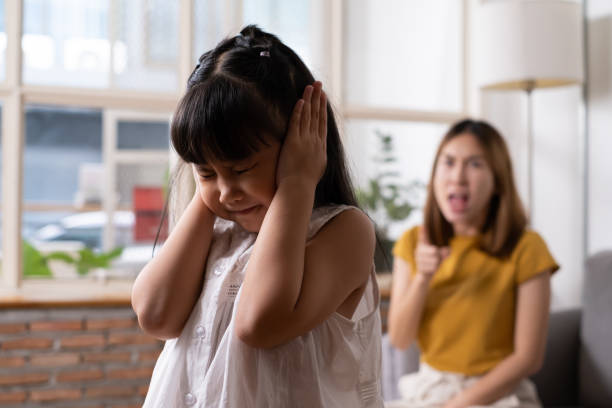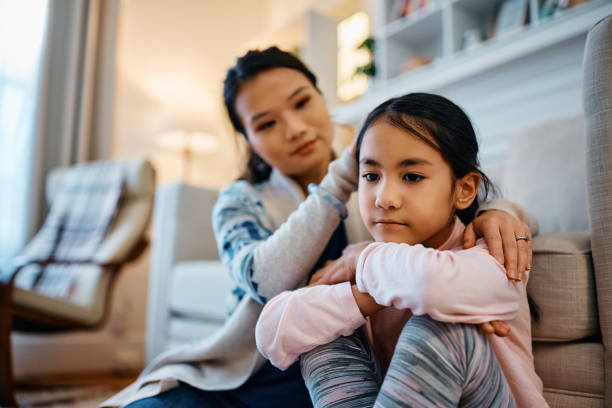Let’s delve into the world of parents gaslighting their children. It’s a topic that’s more prevalent than many of us realize, and its impact can be quite serious. Gaslighting, for those unfamiliar, occurs when someone manipulates another person into doubting their own reality or sanity. Unfortunately, parents can sometimes exhibit this behavior towards their own children.
The Sneaky Ways Parents Gaslight Their Children
So, how exactly do parents engage in gaslighting their children? Well, it can manifest in various subtle ways, often without parents even being aware of it.
1. Invalidating Their Feelings
Imagine this scenario: your child approaches you upset about something, and instead of acknowledging their emotions, you dismiss them or brush them off as overreacting. This is a classic example of gaslighting. By invalidating their feelings, you’re essentially communicating that their emotions are insignificant, or worse, that they’re mistaken for feeling that way.
2. Dismissing Their Experiences
Another way parents gaslight their children is by dismissing their experiences or perceptions of reality. For example, if a child expresses discomfort or fear about a situation, and the parent insists that everything is fine and that they’re just being silly, that can be incredibly confusing and distressing for the child.
3. Denying Responsibility
Parents may also gaslight their children by denying responsibility for their actions or words. For instance, if a parent makes a promise to their child and then conveniently forgets about it or denies ever making it, it can make the child question their own memory and perception of events.
4. Using Derogatory Language
Gaslighting can also involve using derogatory language towards the child, undermining their self-esteem and sense of worth. Calling a child names, belittling their accomplishments, or constantly criticising them can all contribute to this harmful behaviour.
The Vulnerability of Young Minds

Image from iStock
Now, why are children particularly vulnerable to gaslighting? Well, think about it. They’re still trying to figure out who they are and how the world works. So, when their own parents, the people they trust the most, start questioning or dismissing their experiences, it can really mess with their sense of reality. Imagine feeling upset about something, only to have your own parent tell you that you’re imagining things or that you’re just being dramatic. It’s confusing and hurtful, to say the least.
The Long-term Impact on Children
The effects of gaslighting can stick with children well into adulthood. It’s a vicious cycle that can be hard to break.
Gaslighting can have significant effects on a child’s development and behaviour. Here are some common ways it can manifest:
- Propagate Distrust: Children may develop a distrust of themselves and others, leading to confusion and discord in relationships.
- Over-apologising: They may find themselves constantly apologising, even when they’ve done nothing wrong.
- Lack of Confidence: Gaslighting can erode a child’s confidence and conviction in their ideas and decisions.
- Ignoring Intuition: Children may learn to ignore their intuition, leading to poor decision-making.
- Negative Self-bias: Gaslighting can instil a sense of being wrong or inadequate, leading to a negative self-bias.
- Constant Need for Validation: Children may feel the need to constantly prove themselves and provide irrefutable facts to justify their viewpoints.
- Feeling Misunderstood: Gaslighting can leave children feeling regularly misapprehended and isolated from others.

Image from iStock
Parents gaslighting children can lead to issues like low self-esteem, difficulty trusting others, and a constant feeling of being misunderstood. And the worst part? They might not even realise that the way they were treated as kids was harmful until much later in life.
Recognising Gaslighting Behaviour
So, as now likely an adult yourself, possibly with children of your own—and, too, having earlier experienced being gaslit by your parents—ask yourself whether you’ve ever:
- Been too busy or preoccupied to pay sufficient, respectful attention to what your child was communicating to you.
- Denied the import of their words.
- Responded flippantly to their questions or concerns.
- Doubled down on fabricated stories when challenged by your child.
- Invalidated their emotions or experiences.
- Used derogatory names or belittled them out of frustration.
- Disapproved of their choices without considering their perspective.
- Reneged on promises or failed to show appreciation for their contributions to the family.
As adults, it’s essential to reflect on our own behaviour towards children. Have we ever brushed off their feelings or experiences, even unintentionally? Have we ever made them doubt themselves or their reality? It’s worth thinking about, because the last thing we want is to contribute to their emotional distress.
The Importance of Empathy
At the end of the day, empathy is key in preventing gaslighting behaviour. We need to take the time to listen to our children, validate their feelings, and let them know that it’s okay to express themselves. Building a strong, trusting relationship with our kids starts with showing them that we care about what they have to say, even if we don’t always agree.
So, let’s make a conscious effort to be more aware of how we interact with our children. Let’s make sure we’re not inadvertently gaslighting them, and instead, let’s strive to be the supportive, understanding parents they need us to be.
ALSO READ:
The Mom Struggle: Letting Go of Perfectionism Parenting
Letting Kids Fly: A Simple Guide to Avoiding Overprotective Parenting
How Unnecessary Parent Stress Can Sour Your Parenting Experience
 Together Against RSV
Together Against RSV SG60
SG60 Pregnancy
Pregnancy Parenting
Parenting Child
Child Feeding & Nutrition
Feeding & Nutrition Education
Education Lifestyle
Lifestyle Events
Events Holiday Hub
Holiday Hub Aptamil
Aptamil TAP Recommends
TAP Recommends Shopping
Shopping Press Releases
Press Releases Project Sidekicks
Project Sidekicks Community
Community Advertise With Us
Advertise With Us Contact Us
Contact Us VIP
VIP Rewards
Rewards VIP Parents
VIP Parents
